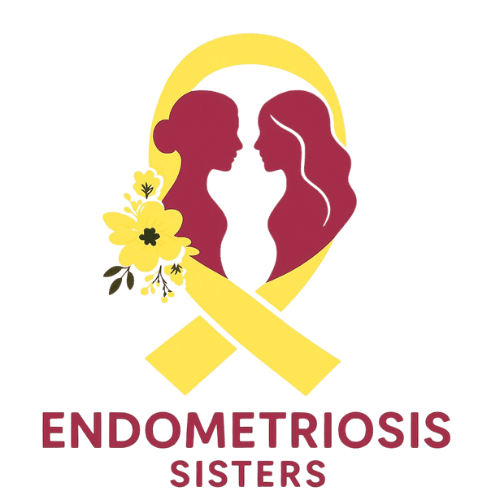How to Support Someone with Endometriosis
Endometriosis occurs when tissue similar to the uterine lining (but not the same) grows outside the uterus. This tissue responds to hormonal changes during the menstrual cycle, thickening and breaking down just like the uterine lining, but unlike normal menstrual fluid, it has no way to exit the body.
The result is chronic inflammation, severe pain, and often the formation of scar tissue and adhesions. The pain isn't just limited to menstruation – it can occur at any time and affect multiple body systems.
Important to Remember
This isn't "just bad period pain." Endometriosis is a serious chronic condition that can be debilitating and life-altering. The pain is real, valid, and often invisible to others.
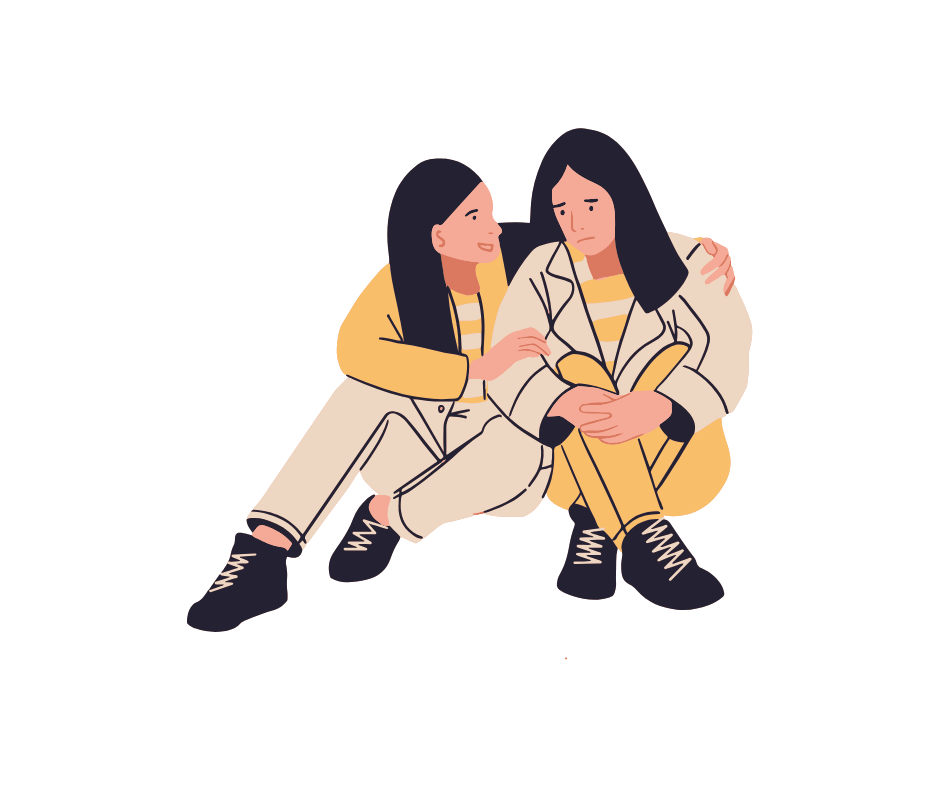
Endometriosis Support Statistics
Women have endometriosis worldwide
Average time to receive proper diagnosis
People affected globally
Common Symptoms Your Loved One May Experience
Physical Symptoms
- Severe pelvic pain (during periods and other times)
- Pain during or after sex
- Painful bowel movements or urination
- Heavy or irregular menstrual bleeding
- Chronic fatigue and exhaustion
- Bloating and digestive issues
- Lower back and leg pain
Emotional & Mental Symptoms
- Anxiety and depression
- Frustration with medical dismissal
- Guilt about cancelled plans
- Fear about fertility and future
- Feeling isolated or misunderstood
- Mood changes related to hormones
- Loss of identity and self-confidence
Quick Navigation
Emotional & Mental Health Support
The psychological impact of endometriosis is often overlooked, yet up to 80% of people with endometriosis experience anxiety, and many also struggle with depression. Creating emotional safety and providing validation can make an enormous difference in their journey.
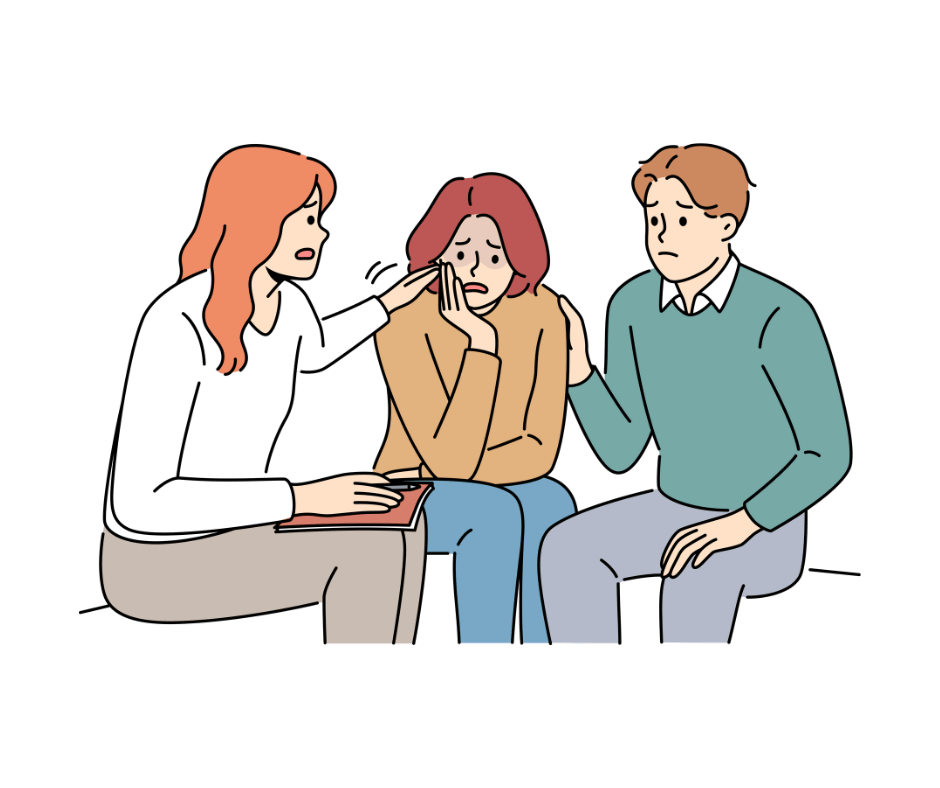
Creating Emotional Safety
Listen without trying to fix. Sometimes the most powerful support is simply being heard and believed. Avoid phrases like "have you tried..." or "at least it's not..." and instead say "I believe you" and "How can I support you today?"
Validate their experience. Acknowledge that their pain is real and significant. Many people with endometriosis have been dismissed by healthcare providers and others, making validation especially important.
Be patient with mood changes. Chronic pain, hormonal fluctuations, and medication side effects can all impact mood and energy levels.
Emotional Support Action Checklist
When to Encourage Professional Help
If your loved one expresses thoughts of self-harm, shows signs of severe depression, or their mental health is significantly impacting their daily functioning, gently encourage them to speak with a mental health professional. Offer to help them find resources or accompany them to appointments.
Practical Daily Support
Small, consistent actions can make a huge difference in managing the daily challenges of living with endometriosis. Understanding their patterns and being prepared with practical help can provide immense relief during difficult times.
During Pain Flares
- Offer to run errands or handle chores
- Bring comfort items: heating pad, hot water bottle, warm tea
- Create a quiet, comfortable environment
- Help with meal preparation or order delivery
- Respect their need for rest and solitude
- Offer gentle distractions when appropriate
Ongoing Daily Help
- Share household responsibilities flexibly
- Plan activities with backup options
- Keep emergency supplies handy (pain relief, heating pads)
- Learn their pain and energy patterns
- Offer transportation to appointments
- Help track symptoms if requested
Creating an Endo-Friendly Environment
Stock comfort supplies: Keep heating pads, comfortable pillows, herbal teas, and over-the-counter pain relief easily accessible.
Flexible planning: Always have a "Plan B" for activities. Understand that energy levels and pain can change quickly, and cancelled plans aren't personal.
Ergonomic considerations: Ensure comfortable seating options and consider the physical demands of activities when making plans.

Supporting Intimate Relationships
Endometriosis can significantly impact intimate relationships, affecting both physical and emotional intimacy between partners. Understanding these challenges and adapting together is crucial for maintaining strong, supportive relationships.

Navigating Physical Intimacy
Communication is key. Open, honest discussions about pain, comfort levels, and desires help maintain connection while respecting physical limitations.
Redefine intimacy. Physical closeness doesn't always mean sex. Cuddling, massage, kissing, and emotional intimacy are equally important for maintaining connection.
Be flexible and patient. Pain levels can change quickly, and what feels good one day might not work another day. Flexibility and understanding are essential.
For Romantic Partners
- Communicate openly about needs and limitations
- Be understanding about painful sex (dyspareunia)
- Explore non-penetrative forms of intimacy
- Support medical appointments and treatment decisions
- Take on additional household responsibilities during flares
- Practice patience with fertility challenges
- Seek couples counseling if needed
Maintaining Connection
- Plan low-energy, intimate activities
- Practice stress-reduction techniques together
- Create rituals for comfort and connection
- Respect boundaries around physical touch
- Focus on emotional intimacy when physical intimacy is difficult
- Celebrate small victories and good days together
- Join support groups for couples if available
Remember for Partners
It's normal to feel frustrated, helpless, or even resentful at times. These feelings don't make you a bad partner – they make you human. Consider seeking your own support through counseling or support groups for partners of people with chronic illness.
Workplace & Social Support
Endometriosis affects 1 in 10 women in the workplace, yet it remains widely misunderstood in professional and social settings. Creating supportive environments requires education, flexibility, and understanding.
For Managers and Colleagues
Educate yourself. Understanding that endometriosis is a legitimate medical condition that can significantly impact work performance is the first step in providing support.
Offer flexibility. Flexible work arrangements, including remote work options, adjusted start times, and the ability to take breaks during pain flares can be life-changing.
Create inclusive policies. Workplace policies should account for chronic conditions and provide clear pathways for requesting accommodations.
Workplace Support Actions

| Situation | Helpful Response | Avoid Saying |
|---|---|---|
| Frequent sick days | "I understand this is a medical condition. How can we work together to manage your workload?" | "You seem to call in sick a lot" or "Others manage to come to work" |
| Needing breaks | "Let me know what accommodations would help you be most productive" | "Everyone deals with pain" or "Can't you just push through it?" |
| Cancelled social plans | "No worries, we'll catch up another time. Hope you feel better soon" | "You always cancel" or "You seemed fine yesterday" |
Medical Advocacy & Appointments
Being an advocate can be one of the most valuable forms of support, especially during medical appointments where symptoms are often dismissed. Your presence and support can help ensure their concerns are heard and taken seriously.
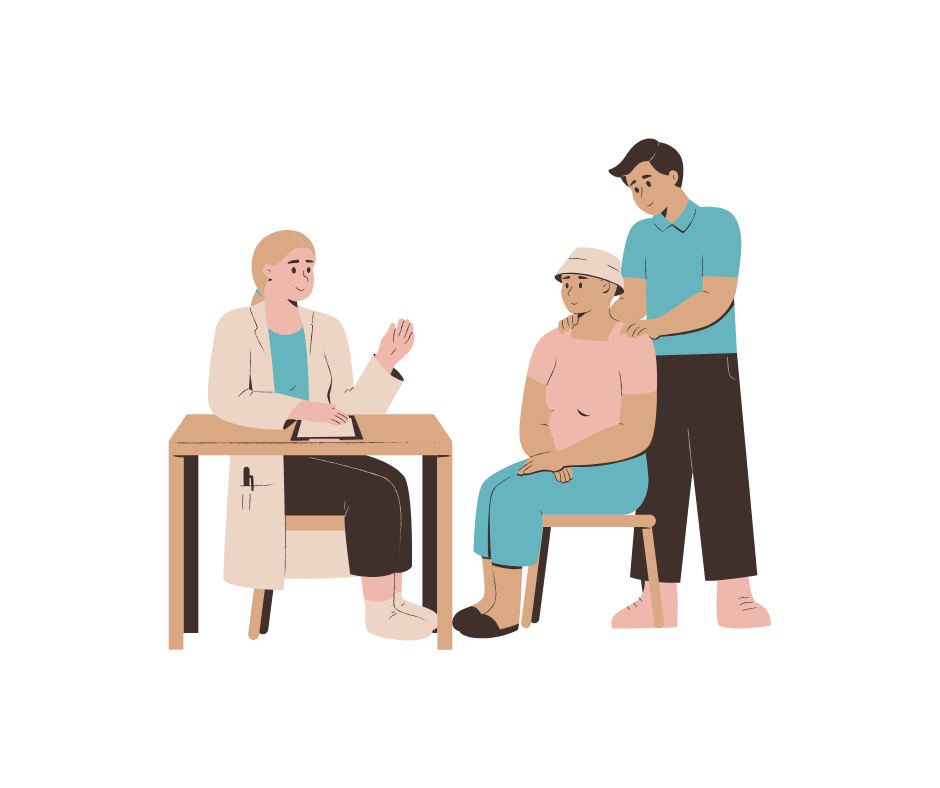
How to Be an Effective Medical Advocate
Accompany to appointments when invited. Having a support person can help ensure symptoms are taken seriously and important information isn't forgotten.
Help prepare for appointments. Assist with tracking symptoms, preparing questions, and organizing medical records.
Validate their experience. If symptoms are dismissed, your witness to their daily struggles can provide important validation.
Before Appointments
- Help organize symptom diaries and medical history
- Research providers who specialize in endometriosis
- Prepare a list of current symptoms and concerns
- Gather questions to ask the healthcare provider
- Review current medications and treatments
During Appointments
- Take notes during the consultation
- Help advocate for thorough examination
- Ask for clarification on medical terms
- Request second opinions when necessary
- Support requests for appropriate testing
After Appointments
- Help process the information received
- Assist with treatment plan implementation
- Research recommended treatments together
- Support decisions about care direction
- Help schedule follow-up appointments
Supporting Self-Care & Coping Strategies
Helping someone develop and maintain healthy coping strategies is crucial for long-term wellbeing with endometriosis. Support their journey toward finding what works best for their unique situation.
Encouraging Healthy Habits
Gentle movement: Support low-impact activities like walking, yoga, or swimming when energy allows. Never pressure, but offer to participate together.
Stress management: Encourage stress-reduction techniques like meditation, deep breathing, or journaling. Consider practicing together.
Nutrition support: Help with meal planning and preparation, focusing on anti-inflammatory foods when possible.
Stress Management
Support meditation, yoga, therapy, or other stress-reduction activities
Nutrition
Help with anti-inflammatory meal planning and gentle dietary changes
Gentle Exercise
Encourage movement that feels good without adding pressure

What NOT to Say or Do
Well-meaning comments can sometimes cause more harm than help. Understanding what to avoid and learning better alternatives can significantly improve your support approach.
| Instead of Saying... | Try This Instead... | Why It Matters |
|---|---|---|
| "Have you tried yoga/diet/exercise?" | "How can I support you today?" | Avoids implying they haven't tried hard enough |
| "At least it's not cancer" | "This sounds really difficult" | Validates their experience without minimizing |
| "You look fine/normal" | "I believe you when you say you're in pain" | Acknowledges that chronic illness is often invisible |
| "Just think positive!" | "I'm here for you through the tough times" | Doesn't place blame or pressure on their mindset |
| "Maybe you're just stressed" | "Your pain is real and valid" | Avoids dismissing their medical condition |
Remember
Even well-intentioned advice can feel dismissive to someone who has likely tried many approaches to manage their condition. Focus on listening, believing, and asking how you can help rather than offering solutions.
Building a Support Network
Creating a community of support around someone with endometriosis can make an enormous difference in their quality of life. A strong network provides various types of support and ensures no one person carries all the responsibility.
Family Support
- Educate family members about endometriosis
- Share resources and reliable information
- Help family understand the condition isn't "just periods"
- Encourage family members to offer specific help
- Create family traditions that accommodate energy levels
Friend Circles
- Share educational resources with mutual friends
- Help maintain social connections during difficult times
- Organize low-energy, inclusive activities
- Be the friend who always understands cancelled plans
- Check in regularly without expecting immediate responses
Professional Networks
- Connect them with endometriosis specialists
- Help research treatment options and providers
- Support their advocacy for workplace accommodations
- Connect with mental health professionals experienced with chronic illness
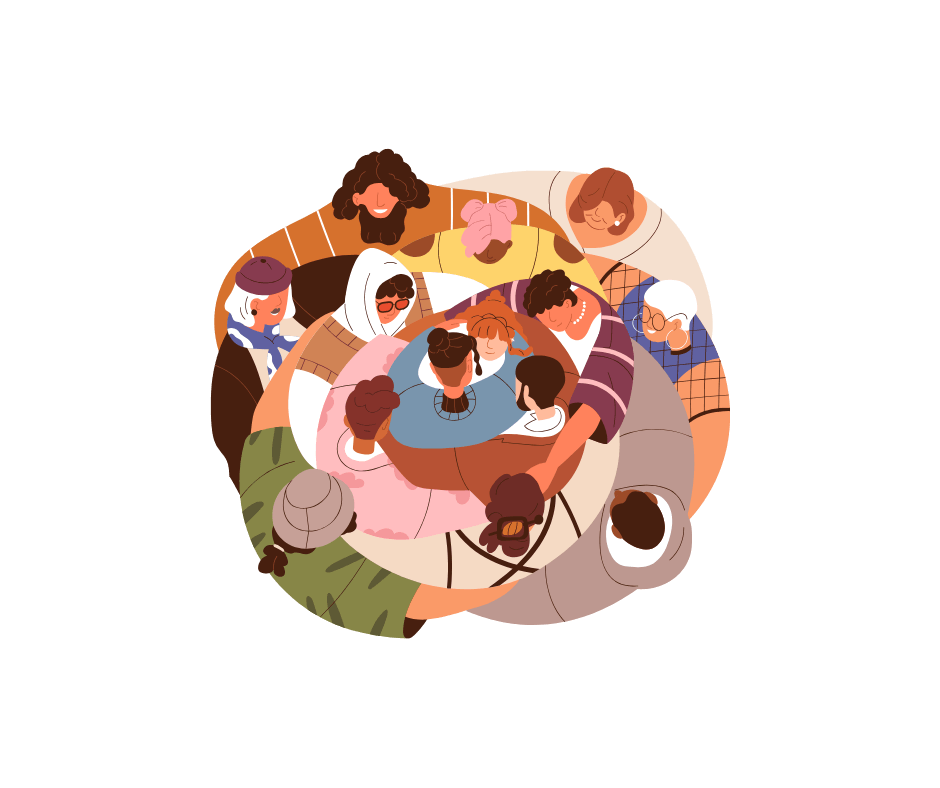
The Power of Community
Online communities can provide 24/7 support and connection with others who truly understand the experience of living with endometriosis.
Local support groups offer in-person connection and practical resource sharing within your community.
Professional support groups led by counselors or social workers can provide structured emotional support and coping strategies.
Long-term Support Strategies
Supporting someone with endometriosis is a marathon, not a sprint. Maintaining supportive relationships over time requires understanding, flexibility, and attention to your own wellbeing as a supporter.
Maintaining Your Own Wellbeing
- Set healthy boundaries to prevent burnout
- Seek support for yourself when needed
- Practice self-care and stress management
- Connect with other supporters and caregivers
- Remember that you can't fix everything
- Celebrate the positive impact you're making
Adapting Support Over Time
- Understand that needs change as symptoms evolve
- Stay flexible with support approaches
- Continue learning about new treatments and research
- Adapt to life changes like career shifts or family planning
- Celebrate improvements and progress together
- Maintain hope while being realistic
Long-term Support Commitment
Connect with Others in Your Position
Join our community where you can connect with others, share experiences, and find the support and advice you need.
Join Our Endo Support GroupRemember: Your support matters more than you know.
Every act of understanding, every moment of patience, and every gesture of care makes a difference in the life of someone living with endometriosis.
Your questions, answered
Find more Frequently Asked Questions on our FAQ page.
Can’t find what you’re looking for?
Ask them directly: "What kind of support would be most helpful right now?" Some days they may need practical help, other days they may prefer to rest alone.
Educate others by sharing reliable resources about endometriosis. Explain that it's a legitimate medical condition, not "just period pain." If people remain dismissive, focus your energy on being supportive rather than trying to convince everyone.
Supporting someone with a chronic illness can be emotionally and physically demanding. It's normal to feel overwhelmed sometimes. Set healthy boundaries, seek your own support when needed, and remember that you can't fix everything.
Ask if they'd like you to attend appointments. If they say yes, take notes, ask clarifying questions, and help advocate for thorough care. Follow their lead - some prefer to speak for themselves while others appreciate having a support person speak up.
Communicate openly about physical limitations and comfort levels. Redefine intimacy beyond just sexual activity - emotional closeness, cuddling, and non-penetrative intimacy are equally important. Consider couples counseling if needed.
Use age-appropriate language such as "Aunt Sarah has a condition that sometimes makes her body hurt, so she needs extra rest some days." Focus on how they can be helpful and understanding rather than detailed medical explanations.
Flexible work hours, remote work options, access to quiet rest areas, ergonomic workspace setup, and understanding about medical appointments. We would suggest to have an open conversations about what specific accommodations would be most helpful.

